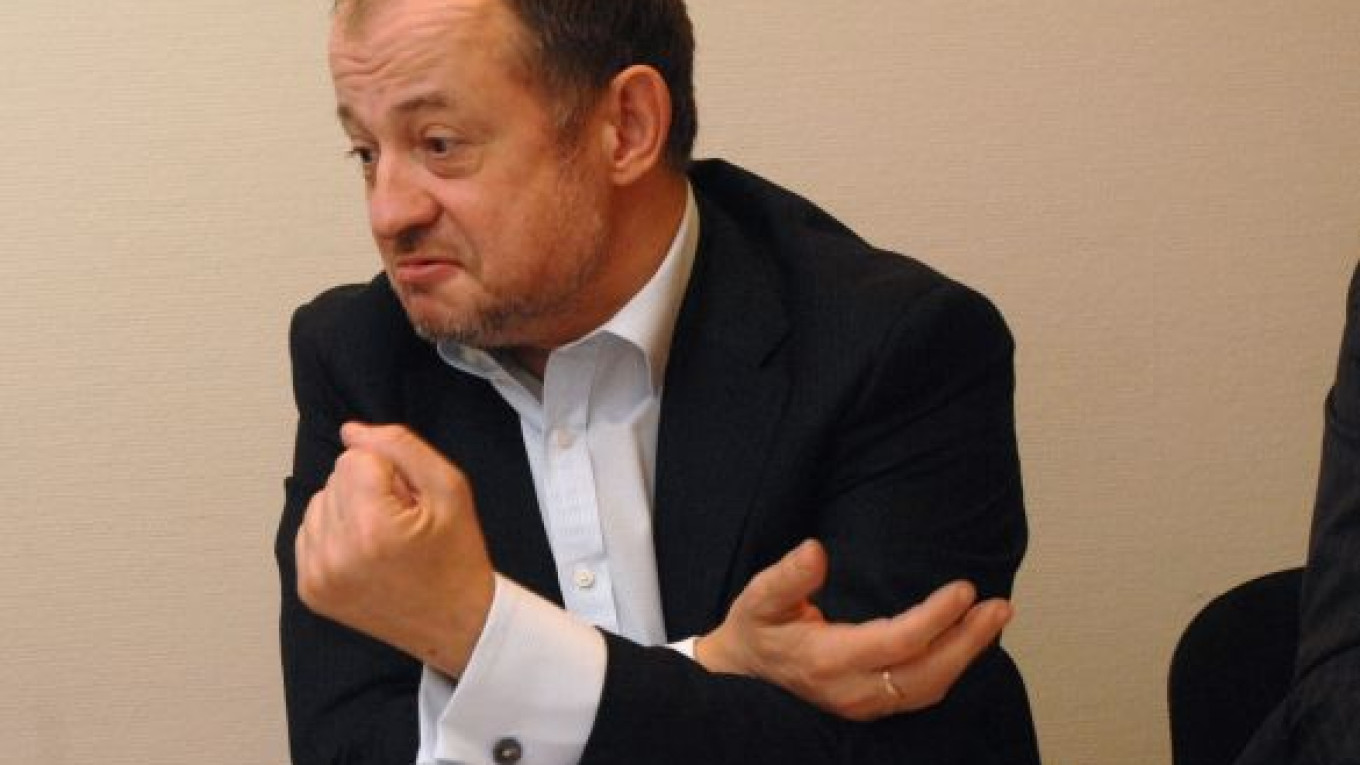Reducing regulation is key to stimulating Russia's domestic growth after the recession, Novolipetsk Steel Chairman Vladimir Lisin said Friday.
"In my opinion, the biggest problem is stimulating production growth," Lisin, ranked Russia's richest man by Forbes magazine, said in an e-mailed response to questions. "And how to stimulate [production] when business is regulated so tightly."
The executive joined the chorus of prominent Russian businessmen who have echoed calls by President Dmitry Medvedev to modernize the economy and fight corruption to spur growth.
The economy is expected to return to growth of about 4 percent this year, but the raw material and oil-fueled expansion masks domestic stagnation.
The manufacturing purchasing managers' index stood at 50.4 in the first quarter, indicating a slight expansion after contracting for 16 of the 17 months up to December 2009.
"If they have decided to modernize the economy, then it is necessary, in succession … to modernize industrialization, industrial policy … and continuing, without pause, education, tax policy, customs, the legal system and so on," he said.
Lisin, a career steel man in an industry run by financiers, graduated from a Siberian steel institute and became a senior steel plant manager in the late 1980s.
As a junior partner to the powerful Cherney brothers, Mikhail and Lev, Lisin helped their TransWorldGroup, a metals trader with links to the political elite surrounding then-President Boris Yeltsin, gain control of some of the country's most lucrative metals assets.
The steel baron's fortune was estimated at $15.8 billion by Forbes earlier this month, putting him more than $2 billion ahead of his closest Russian rival, Mikhail Prokhorov.
Lisin acquired Novolipetsk Steel, or NLMK, in part through buying out a large stake from U.S. financier George Soros, and floated the company in London in 2005.
It is consistently one of the most profitable in the Russian steel sector, posting a net profit of $215 million on sales of $10.6 billion in 2009, while larger rivals such as Evraz Group and Severstal stayed in the red.
Lisin said the company has succeeded in part because it avoided the type of expensive foreign acquisitions that have landed rivals billions of dollars in debt.
"In the final analysis, acquiring noncore assets that have no synergies with the core business, and at the same time increase borrowings extraordinarily, acts as a ballast on growth in our sector," he said.
NLMK, Russia's fourth-largest producer, had debts totaling $2.5 billion at the end of last year, compared with leading producer Severstal's $7.2 billion and number two Evraz's $7.9 billion.
Lisin also said NLMK plans to expand value-added production and to ship more crude steel to its rolling mills abroad.
The company wants to increase annual crude steel output to 12.4 million metric tons at its main production site in Lipetsk by next year, up from 8.5 million metric tons in 2009.
"We will continue to expand our capacity to produce steel at low cost, we will build new blast furnaces and modernize steelmaking capacity," Lisin said.
NLMK ships Russian slabs to its DanSteel operation in Denmark and also operates a joint venture with Luxembourg-based Duferco.
It has production assets in several countries including Belgium, France and the United States.
A Message from The Moscow Times:
Dear readers,
We are facing unprecedented challenges. Russia's Prosecutor General's Office has designated The Moscow Times as an "undesirable" organization, criminalizing our work and putting our staff at risk of prosecution. This follows our earlier unjust labeling as a "foreign agent."
These actions are direct attempts to silence independent journalism in Russia. The authorities claim our work "discredits the decisions of the Russian leadership." We see things differently: we strive to provide accurate, unbiased reporting on Russia.
We, the journalists of The Moscow Times, refuse to be silenced. But to continue our work, we need your help.
Your support, no matter how small, makes a world of difference. If you can, please support us monthly starting from just $2. It's quick to set up, and every contribution makes a significant impact.
By supporting The Moscow Times, you're defending open, independent journalism in the face of repression. Thank you for standing with us.
Remind me later.


